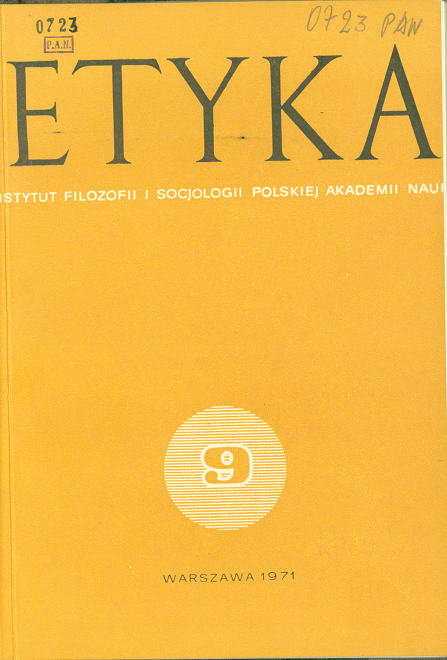Ordinary language uses of the polish words: etyka, moralność, obyczaj, zwyczaj
Keywords:
obyczaj, etyka, moralność, leksykografia, kultura, język polskiAbstract
The article scrutinizes four groups of words based on common lexical morphemes. The material for the inquiry was gathered from large Polish dictionaries. Consequently, the construing procedure could evolve both synchronically and diachronically. The synchronic examination brought to light various emotional and semantic connections between the words in question, and indicated a field of the strongest links of synonymy. This field is constituted by the senses of the words: “etyka”, “moralnośc”, “obyczajność” and “obyczajowość”, which roughly correspond to the English “ethics”, “morals”, “decency” and “good manners”. Certain other semantic fields of looser integration have also been shown. The diachronic examination concerned language shifts. The words: “obyczaj” and “zwyczaj” (English counterparts: habit and custom) and all their derivatives had been in use before 16th century. The words “etyka” and “moralność” (English counterparts are obvious) came to use in the centuries 16th through 18th, and fully spread afterwards.
Downloads
Published
Issue
Section
License
Works published in ETYKA are available under the Creative Commons Attribution No Derivatives 4.0 International Licence (CC BY-ND), which entails acknowledgement of authorship without derivative works. Under this licence, Authors keep their copyrights and agree that their works can be used again legally for any purpose, including commercial ones, except for the creation of derivative works, without the need to obtain previous consent of the Author or publisher. The articles can be downloaded, printed, copied and disseminated; under the condition that the authorship is indicated accordingly, together with the place of original publication. The Authors preserve their copyrights to the above-mentioned works without any limitation whatsoever.



